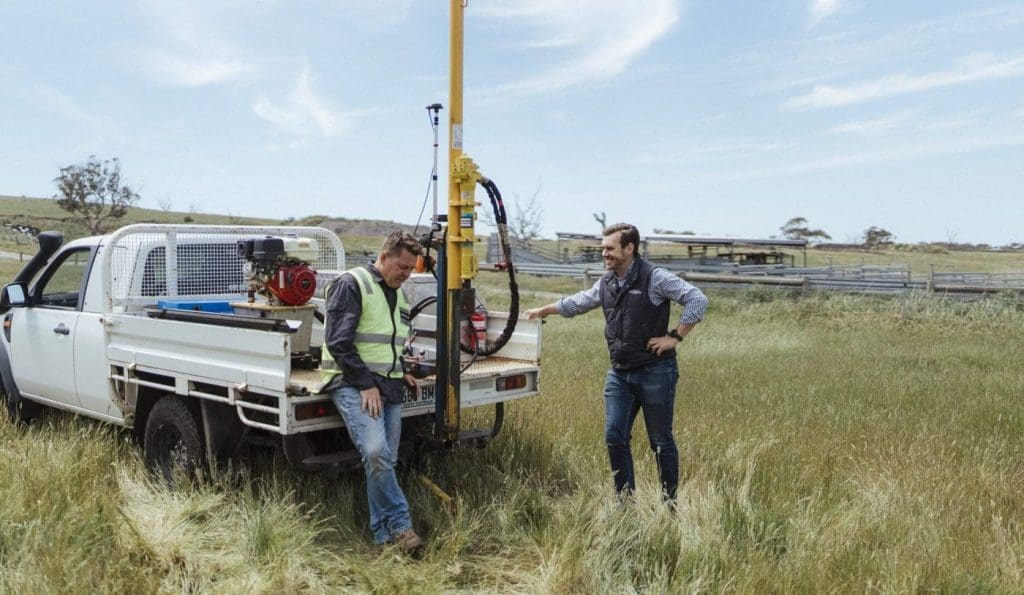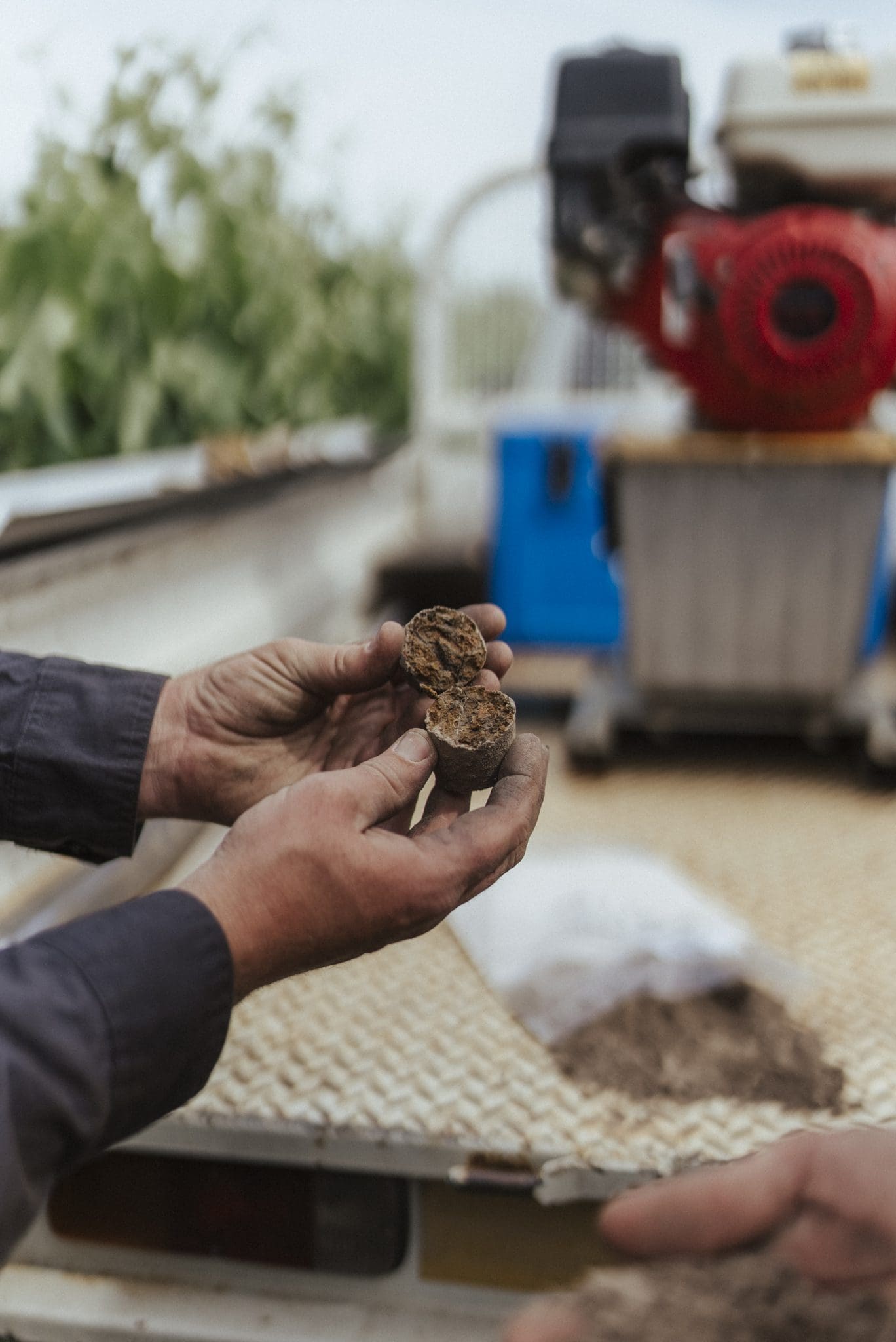
AS part of the Federal Government’s National Soil Carbon Innovation Challenge, the University of Queensland and a group of collaborating partners is leading critical research to enhance Australia’s soil carbon accounting capabilities to achieve its emissions reduction goals, in line with the Paris Agreement.
The $4.3 million two-year research project is geared to advance soil carbon measurement technology and reduce the cost of base-lining a farm’s soil carbon to the national target of $3 per hectare.
Launched in March 2023, the project encompassing 430 farms and 15,000 soil samples was organised and paid for by environmental analysis provider and project lead, FarmLab.
The extensive sampling, due to be complete in September 2024 will be crucial in developing high-resolution maps of Australia’s soil organic carbon (SOC), using remote sensing, mid-infrared spectroscopy combined with machine learning, to enhance the accuracy and efficiency of estimation.
With farmers oversubscribed in most states (some availability remains in South Australia, Western Australia and Queensland) – the demand for soil carbon testing is clear, as are the financial barriers to undertake baselining.
By sharing SOC data with the government, participants receive free baselining (up to 200ha), that’s helping drive much needed adoption, and enable data-driven decision-making for agribusinesses in an increasingly volatile climate.
FarmLab chief executive and founder Sam Duncan said with all the interest in environmental markets and natural capital valuation, the group had seen phenomenal interest from farmers in measuring SOC.
“The project is helping farmers understand their land better, the quality of soil, particularly soil carbon and how their management activities impact the landscape and soil health,” he said.
Each farm has 18 soil core samples taken by FarmLab’s verified sampling partners from two depths: 0-30cm and 30- 60cm, using AgriCircle’s methodology in tandem with Ziltek’s portable MIR tool, RemScan.
Farms must be running two different management practices, for example a mixed farm with cropping and livestock.
“We’re excited about the richness of data that’s coming out of this project with so many different kinds of management practices getting assessed,” Mr Duncan said.
He likens each farm to a ‘fingerprint’, unique in its location, climate, soil types and the infinite number of management strategies used.
“This data provides farmers with an opportunity to improve soil carbon because there isn’t currently enough data relating to specific climates, soil types and farming systems, that indicates that if you do X, you’ll have Y effect on soil carbon.”
Project lead researcher, Dr Yash Dang, Principal Research Fellow at The University of Queensland with 25 years’ experience in soil, nutrient management, and soil constraints agrees.
“Low-cost carbon stock estimation in Australia is the biggest challenge at the moment,” he said.
“Right now, we don’t have a reliable method by which we can say, ‘this is the point where we should go and sample’,” Mr Dang said.
 This challenge led to engaging Swiss agritech company, AgriCircle, as part of the research project to utilise the company’s methodology in the Australian environment.
This challenge led to engaging Swiss agritech company, AgriCircle, as part of the research project to utilise the company’s methodology in the Australian environment.
Agricircle is successfully working in a number of countries, particularly Ukraine, where the paddock sizes are similar to Australia.
“By using proximal sensing, we can get some comparable predictions of the carbon stocks using MIR as compared to the wet chemistry, which will be a win-win situation that can further lower the cost of carbon estimation,” Mr Dang said.
Fourth generation mixed livestock farmer, Rohan Morris of Gleneden Family Farm, near Maryvale, Queensland, on the edge of the Great Dividing Range, is one of the participants set to benefit.
“We’re data hungry,” Mr Morris said. “The project gives us data – the unarguable evidence of what you’re doing – that we really don’t have a budget for collecting ourselves.”
In the past decade Mr Morris and his wife, Fiona, an environmental scientist, have accumulated four sets of soil samples; one from the previous owner; and three from research projects by willingly sharing data for environmental purposes.
“We can now compare each of the datasets, and that’s becoming quite useful – to see what’s changed and then use that to tweak our farming approach,” he said.
Dr Sean Manning, CEO of Adelaide-based sampling partner, Ziltek said his company could not have been involved with a project of this scale if it wasn’t firstly funded so generously by the Federal Government, and secondly, supported by multiple parties with different skill sets.
While the research project protocols don’t comply with the Clean Energy Regulator, FarmLab has gained interest from voluntary market brokers, such as B Carbon, to provide participating farmers with the option to engage in high-integrity environmental projects.
If successful with uptake, the project will offer an opportunity for Australian agriculture to accelerate its national commitments towards decarbonisation.
Farmers interested in participating in the national soil sampling project can apply here.
Source: Farmlab
